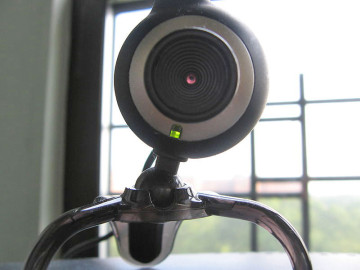The Future of the Music Business Looks a Lot Like Porn

The performer leans in to the webcam so the home audience can get a better angle. The chat box explodes, the tips start rolling in and adding up fast. For $50, she’ll perform pretty much whatever you want. An extra $5 will get you a recording, so you can relive the experience later.
Welcome to the main revenue stream of a future music career.
What porn actors already have adapted to, musicians are beginning to understand.
Music and porn are both performance-based businesses. These performances are captured by companies that pay to record, produce and distribute them in exchange for ownership of and exploitation rights to the recording.
You don’t hear a lot of porn actors complaining about piracy anymore. That’s because, unlike the music industry, the sex industry has adapted their culture and their business model to modern technology.
These “cam shows” as they’re known, are opportunities for a performer (or performers) to engage in an interactive performance with a virtual audience. There are myriad many ways this performance is monetized… including paying for access to recordings of performances.
This is the first lesson for musicians: The music recording will never go away, but its role will change.
Fans are beginning to realize what us musicians already realize: The recording is a memento of a performance. The performance is the thing of value, the recording is just a copy, a way to access the performance at their convenience and in their chosen context.
Not Just a Tip Jar
There are many other ways cam shows are monetized. Gratuity is the main revenue stream, but “virtual tip jar” is inadequate to describe the mechanism of payment. The tips come with requests. The bigger the request, the bigger the tip. In this sense, the audience is curating and commissioning parts of the performance live, as it happens. They are participating in the creation of the performance, and subsequent recording.
This is the second lesson for musicians: As copyright is devalued, patronage will become the dominant revenue stream for performers in the digital age. Culture is participatory now. Fans increasingly avoid passive listening experiences in favor of interacting with performances. With crowdfunding, they directly finance niche products they want to see created.
Musicians obsess so much about how their precious art is being devalued, they fail to stop and look at it from the fan perspective.
From the fan’s point of view, the music itself is not being devalued, it’s the recording. The performance and their relationship to it has and always will be where the value is created.
Do you hear porn actors complaining that their bodies are being devalued? Do you hear them lament all this amateur work that is flooding the market? Ten years ago, you used to hear it all the time. Now, not so much. That’s because they’ve adapted and they’re making money.
If you repeat something enough to yourself it becomes true to you. This is not just an old adage but a fact of neuroscience. Musicians have repeated “music is being devalued” so much, they actually believe it. They could’t be further from the truth.
By interacting with performances instead of passively listening to recordings, many fans have grown to value music more than ever.
Look at the jam band scene, which was always ahead of its time on this topic. Or look at EDM. These are genres and business models all about experiencing the music — being there — whether at the club, the arena, or the festival. They’re making recordings and monetizing them, but it’s just a subset of the live show.
The Obstacle
To the three labels that own the rights to ~70% of the world’s recordings and dictate the terms by which all musicians get paid, this is a nightmare scenario. Fans exchanging their favorite recordings of shows, or remixing and sampling their favorite artists’ tracks is a crime punishable by up to $150,000 per song.
Thankfully, technology companies are not waiting around for the labels to co-opt the market for interactive virtual performance. Our site lists many different fan interaction platforms that are already making musicians money.
So, how about you? Do you think the future of the music business is pursuing patronage and letting the recording and the copyright take a backseat? Or do you prefer the corporate lobbyist version of the music business? Which is the sexier future for musicians?



















Never heard music streaming put in this sort of context! Especially with a solution in mind. Thank you!